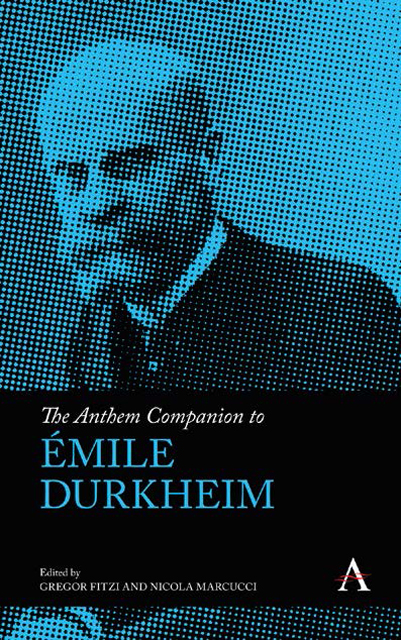Chapter 4 - Moral Sociology: The Actuality of a Research Programme
Published online by Cambridge University Press: 09 December 2022
Summary
Introduction
There is no doubt that Durkheim's sociological research programme plays a crucial role in sociological theory building at least since Parsons made it a pillar of the ‘sociological canon’ (Parsons 1949). Yet, Parsons's research perspective is also strongly biased towards his interpretation. He localizes Durkheim's central contribution to sociological theory in the interest for the issue of social integration in highly differentiated societies and underlines the alleged inadequacy of his answer to this question. According to Parsons, Durkheim's sociology has two starting points: a ‘positive’ and a ‘negative’ one (Parsons 1960). In a positive sense, Durkheim adopts Comte's concept of ‘consensus’ as the focus of social integration which shapes ‘mechanical solidarity’ in traditional societies (Orsello Montanari 1971). The negative point of reference in Durkheim's sociology consists, instead, in the ‘utilitarian conception’ of individual, interest-driven social action in modern societies, which he would borrow from Spencer's sociology. That is where the notion of ‘organic solidarity’ would come from as a mere network of contractual relationships. According to Parsons, Durkheim's sociology thus reveals a dichotomous arrangement of the sociological category-field based on the dialectic of consensus and contract in a fashion which is reminiscent of Tonnies's opposition between community and society (1887). In order to integrate Durkheim's contribution to the sociological theory of modern societies, for Parsons, it must thus be clarified how the concept of organic solidarity can be reconciled with the need for substantial social integration. This means for him to understand how in highly differentiated societies a ‘common normative orientation’ of social action is possible, despite all normative pluralism.
As a consequence, Parsons considers Durkheim's formulation of the relationship between collective normative orientation and organic solidarity to be inadequate. Parsons's analysis starts from the assumption that the structure of society consists in patterns of normative culture that are institutionalized in the social system and internalized in the personalities of the individuals.
- Type
- Chapter
- Information
- The Anthem Companion to Émile Durkheim , pp. 79 - 98Publisher: Anthem PressPrint publication year: 2022



